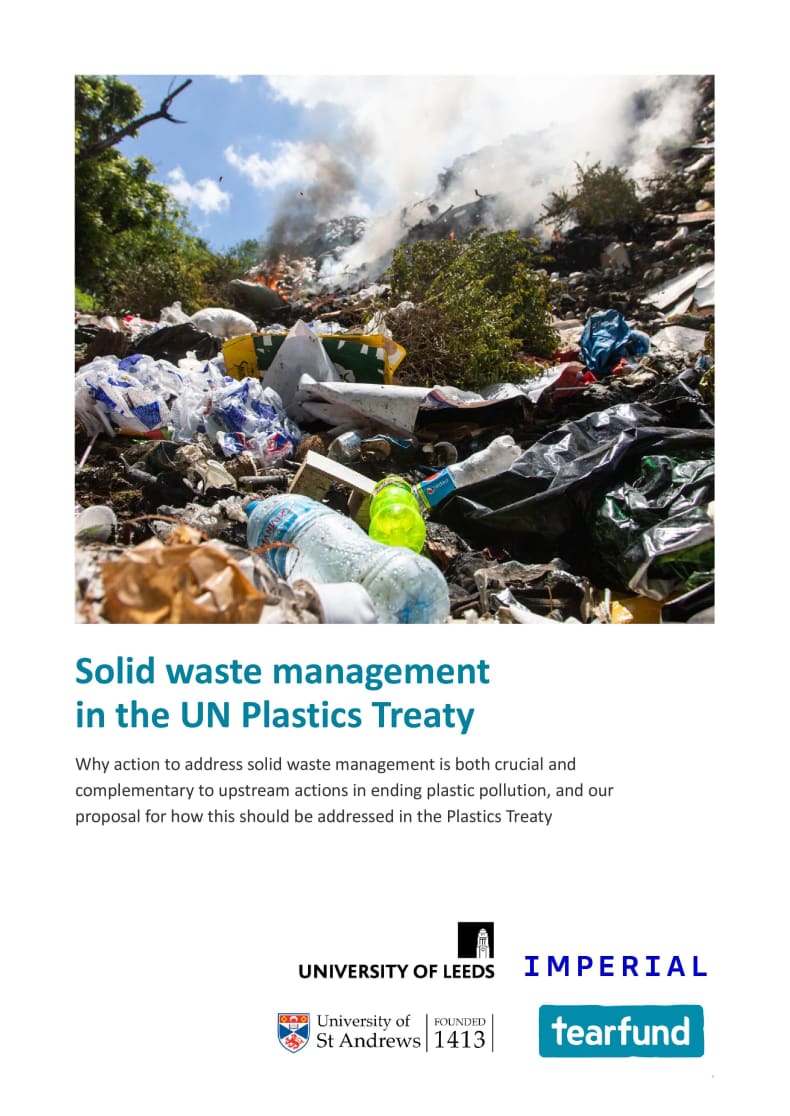This paper offers a proposal for the provision on waste management in the Plastics Treaty, as well as key considerations for the relevant annexes, and for the envisaged future guidelines on waste management.
Research reports
A report which highlights why solid waste management is crucial to ending plastic pollution, and includes recommendations for UN Plastics Treaty discussions
2024 Available in English

This paper offers a proposal for the provision on waste management in the Plastics Treaty, as well as key considerations for the relevant annexes, and for the envisaged future guidelines on waste management.
Negotiations for an international legally binding instrument on plastic pollution, including in the marine environment (the ‘Plastics Treaty’) cover interventions throughout the entire lifecycle of plastics, with the intended aim of ending plastic pollution.
However, measures to mitigate plastic pollution via waste management have yet to receive sufficient attention, in part because they are perceived to be supported only by stakeholders who want to divert attention from, and limit, upstream interventions that will reduce plastic production. We argue that effective action on waste management is entirely complementary to action that reduces plastic production, and that both will be needed to eliminate plastic pollution.
Currently, 20–30 per cent of people globally have no access to a municipal solid waste collection service, so instead they must instead self-manage their waste in an uncontrolled way, either by direct open dumping in the environment or open burning. The lack of emphasis on extending this basic, essential service could result in a collective failure to address many aspects of the plastic pollution crisis.
Acknowledgements: We wish to acknowledge Professor David C Wilson’s guest blog for the International Solid Waste Association (ISWA), ‘Waste management needs to be on the main agenda for the “plastics treaty” negotiations’, published in advance of INC-3, which provided inspiration for this paper. Also Dr Josh Cottom (University of Leeds) for the creation and adaptation of the SPOT model to examine the low emission scenarios modelled for this report, and Emmy Falk Nøklebye of NIVA for constructive comments on the draft report.
If you found this resource useful, please share it with others so they can benefit too.

Be the first to hear about our latest learning and resources
Sign up now - Get our email updatesYour privacy and peace of mind are important to us. We are committed to keeping your data safe. We only collect data from people for specific purposes and once that purpose has finished, we won’t hold on to the data.
For further information, including a full list of individual cookies, please see our privacy policy.